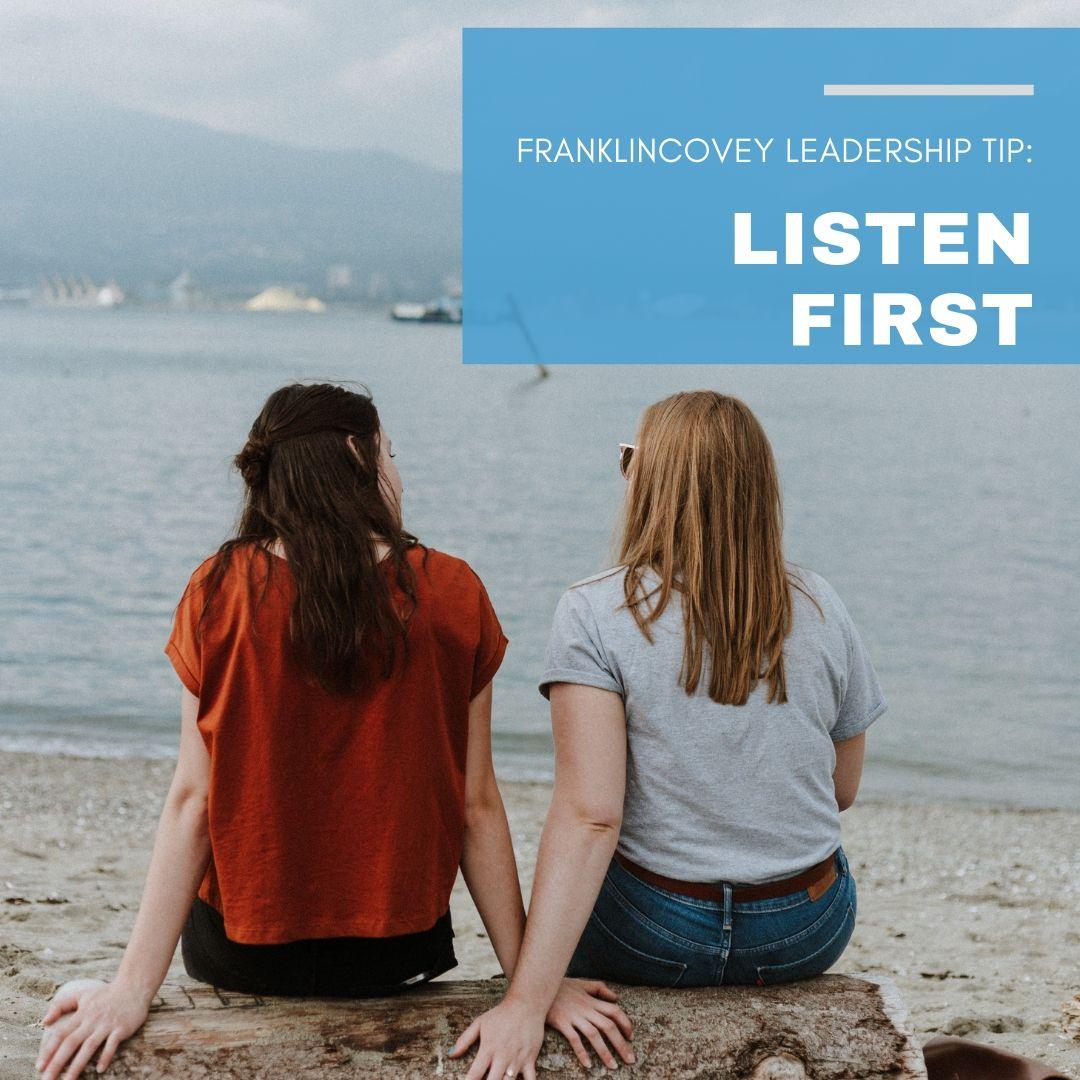When was the last time you listened to understand rather than to reply?
Listening often requires a generous gift of time and attention to forget about your own needs and focus intently on someone else’s. To really listen requires discipline, self-control, and a genuine desire to understand the other person’s point of view. Listening requires you to care, perhaps even more than you may want.
When someone is talking, purposely close your mouth and focus on the physical sensation of your lips being pressed together. When the other person has paused, count to five before responding. Doing so will increase the likelihood that they’ll continue, often sharing crucial details about their point of view or situation.
The late Dr. Stephen R. Covey shared four specific types of poor listening techniques we commonly default to:
Evaluating (agree or disagree using our own experience as reference) Probing (ask questions using our own experience as reference) Advising (give counsel using our own experience as reference) Interpreting (make assumptions about the other person’s motives using our own experience as reference)
It can be freeing to put yourself aside and focus on someone else. Spending time in that quiet place of connection with someone else in their angst, their joy, or their frustration can create bonds that will last a lifetime.
Here are ways you can listen first:
- Practice not interrupting by gently putting your lips together and counting to five after the other person appears to have finished speaking. The more you practice, the more natural it will become.
- Demonstrate Empathic Listening by striving to understand the other person’s needs, goals, pressures, and feelings. Recognize when you are on your agenda versus theirs.
- When you find yourself interrupting, giving advice, agreeing or disagreeing, probing, or telling your own story… stop. Check back in and listen intently to understand what the other person is saying and how they’re feeling.
- If the other person specifically asks for your suggestions or feedback, you may provide it.
- Recognize the value of time as a gift — you can’t meet the needs of everyone, but you can do your best to meet the needs of the person in front of you.

